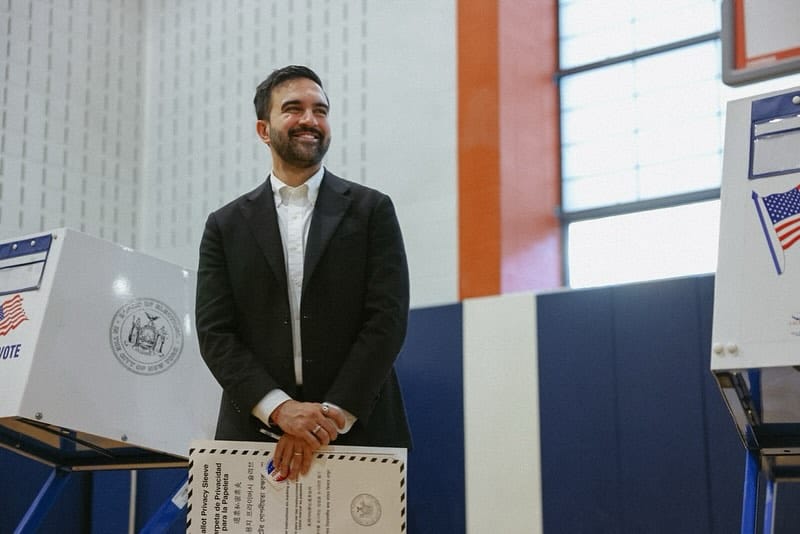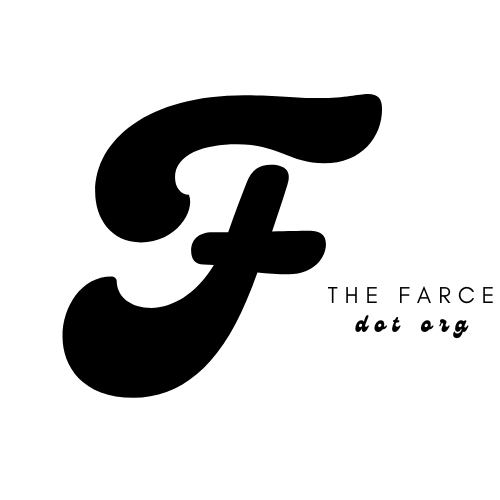Why the Mamdani campaign must be the future of politics

The emotional genius of Zohran Mamdani’s social media strategy will be inspected and imitated for at least the rest of this decade.
Almost every candidate uses TikTok and video now, because they must. But even before Election Day, I believed he was the first true “TikTok” candidate. He has used short videos not only to make his case to voters but also to bring more than 100,000 volunteers into his movement. And in doing so, he has told a transformative story both about who he is and who his voters want to be.
And it’s even deeper than that.
Watch the video below.
It was posted before polls opened on Tuesday. And it confirmed what he was doing is on a level beyond anything we’ve seen in politics since Obama 2008 (though it definitely owes all kinds of inspiration to Alexandria Ocasio-Cortez’s trailblazing 2018 campaign [dig if you will how hard “outsiders” with long names have to work to succeed in American politics]):
It’s humbling. It’s empowering, as much about the viewer and participants as it is about the candidate. And it’s redeeming in a way politics rarely is.
Perhaps what speaks to the quality of these videos and the campaign is something media consultant Rachel Karten identified in the campaign’s first videos. They were filmed in a “style that makes viewers want to stick around to the end.”
The video above brought together the story and argument that Mamadani had been telling since the beginning of his campaign last year, when he first tried to diagnose how so many New Yorkers had been swindled into supporting Donald Trump or disillusioned from supporting Trump’s opposition. To me, that message is “If we listen and find the best in each other, change is possible.” But part of the campaign's depth is that you could find dozens of other equally salient themes.
You probably know that Mamdani’s mother is famously—thanks to ridiculous attempts to portray him as a “nepo baby” against a man whose last name has been his primary qualification for every job he’s ever had—a filmmaker. If such a skill could be inherited, we’d be drowning in Speilbergs.
Still, the credit for the video narrative, strung together from dozens of pieces, must start with the candidate, as everything in a campaign does. He’s a star, and being as good on video as he is cannot be taught; it can only be aspired to.
But the magic of the storytelling was born, like many things these days, out of a group chat. In that chat, there was a variety pack of producers and filmmakers dedicated to using their corporate and narrative film backgrounds for good, united in their belief that “well-produced media is a weapon in any fight.”
But I hesitate to dwell too much on the beauty of the Mamdani campaign’s social media brilliance, because he will be so imitated and has set the bar for what any serious candidate must attempt online. That risks ignoring the depth of the campaign’s innovation, which is truly a story of using tech to power mobilization.
That’s why I command you to read Micah L. Sifry’s interview with Ivan Pardo, the 38-year-old founder and sole proprietor of Solidarity Tech, “whose platform serves as the main technology backbone for Mamdani’s mayoral campaign.”
Pardo built the platform while developing a constituent relationship management (CRM) system for a rideshare worker union.
(Stop right here and note, again, how tech and inspiration to do good have melded to make this story possible; in this era of AI bubbles and crypto corruption, we need to be reminded that these tools are also ours.)
And the platform turned out to be the perfect infrastructure to build on the campaign’s digital media success:
There’s been a lot of attention on how they’ve used social media, making catchy little videos that captured a lot of attention. But what happened next is typically, they’d follow it up, say, if it’s on Twitter, the tweet right after it would be a link to the volunteer page. All those pages are hosted on Solidarity Tech. Every session, whether it’s canvassing, phonebanking, or whatever event the campaign is hosting, they capture all the RSVPs through Solidarity Tech.
But the most exciting thing you’ll learn from Sifry’s interview with Pardo comes in an update posted after Mamdani’s win.
That update includes some remarkable numbers: 104,000 volunteers, more than 4.4 million calls, 3 million doors knocked, 6,568 people signed up on the spot to volunteer with the campaign when asked by a canvasser, another 8,389 when asked by a phonebanker, and more than 700 volunteers “‘stepped into leadership’ and got trained to be field leads, who were given the responsibility to run weekly local canvasses and welcome new volunteers to the campaign.”
But that’s not the most exciting part. What is?
“This is going to transform our city,” Tasha Van Auken, the field director for the Mamdani campaign, told Sifry. “It doesn’t stop tonight.”
And it better not, given the extraordinarily high expectations for the new Mayor.
“We will meet them,” Mamdani said in his must-watch victory speech on Tuesday evening.
This piece, “Zohran Mamdani’s Next Big Battle Is in Albany,” explains why such mobilization is the only hope for achieving that agenda so clearly defined by this campaign. The governor must be on board.
Kathy Hochul, who has pushed “moderate” as her defining attribute since, at least, Andrew Cuomo selected her as his running mate, wisely embraced Mamdani at the close of the campaign. She did this despite the two most powerful Democrats in Congress, both New Yorkers, disgracing themselves with their unenthusiastic support (in Hakeem Jeffries' case) or obstinate refusal to support (that must be read as opposition in Chuck Schumer’s case).
Why did Hochul go all in? Probably because she needs that mobilization to win in 2026 against Elise Stefanik, Trump’s Tracy Flick.
Constant mobilization for the Mamdani administration will also remind the governor of who will be knocking doors for her next fall and who won’t.
But I hope the aspirations are deeper than that.
For us olds who still lament the winddown of Obama’s massive volunteer army after the 2008 election, watching the energy dissipate around this campaign would trigger PTSD. (Read Micah L. Sifphy on “Obama’s Lost Army” if you’d like to torment yourself.)
This would be a disaster any time. But in an era of rapid authoritarianism consolidation, what Mamdani has built isn’t just inspiration; it’s essential for preserving our freedoms. This isn’t just true if you, as I do, buy Isabela Weber’s argument that the actual politics behind the campaign present “the beginning of an antifascist economic program that can win back people who have lost faith in democracy itself.”
It’s also true if you listen to Andrea Pitzer—and one should always listen to Andrea Pitzer—who draws on her experience writing about concentration camp regimes around the globe to argue, in my words, that we’ve been fooled into thinking that politics in America are JUST elections.
She argues that the hope we found Tuesday night can only make a difference if those victories are just a first step.
“We won because we insisted that no longer would politics be something that is done to us now,” Mamdani said in his victory speech. “It is something that we do.”
That kind of politics cannot just be about elections.
In her new video, Marcy Wheeler points to the Mamdani campaign, along with the solidarity of the opposition to the regime in Chicago and the No Kings movement, as the kind of “hard work” we need to do to survive the damage that has been done to our democracy and the intentional malice of the Trump regime.
To me, the Democratic Party’s fixation on Pollingism and Electionism, in which we conduct our politics primarily by spending hundreds of millions of dollars on stale ads in the fall before the election, has helped bring us to this point. To be clear, this is a point where we cannot, with any confidence, predict how or whether we will ever rid ourselves of this regime’s harms.
(This failed strategy is one big reason I encourage everyone to support the Movement Voter Project, which tries to funnel at least a slice of that money into building community power and elevating organizers who get out the vote because they do the hard work of engaging people in the daily grind of politics by offering MEANINGFUL solidarity and potential outcomes.)
All of this leads us to the question of what politics actually is.
In the episode of Next Comes What above that I produced, I oddly included some of this excellent video on the work of Judith Butler, a pioneering philosopher of gender.
And as I did, I had a revelation that any queer person probably long ago: everything is politics. That’s something authoritarians who aspire toward totalitarianism, like our current regime, get. And it’s something we no longer have the luxury of ignoring.
What we perform is what we are.
When a candidate performs entirely for elections and says, “I’ve got this from here,” she is essentially asking the same from us, in degrees, that an authoritarian does: acquiescence.
Our system is built to convince us that politics happens a few days a year. But any parent in Chicago who now rightly fears ICE or Border Patrol roaming their streets for guns blazing and grimaces threatening can tell you that politics is not optional. Not anymore, at least.
Being political all the time can be annoying and painful. I can only imagine how trans people who find themselves to be the brunt of this regime’s convenient hostility are dealing with this moment. But the Mamdani campaign has reminded us that politics can also be joyful. In fact, to win, it must be.
THE FARCE fights for a free America with fearlessness. Subscribe to fuel the Farce—free or paid, your support matters.
If you appreciate our work, you can always drop us a tip.

Member discussion